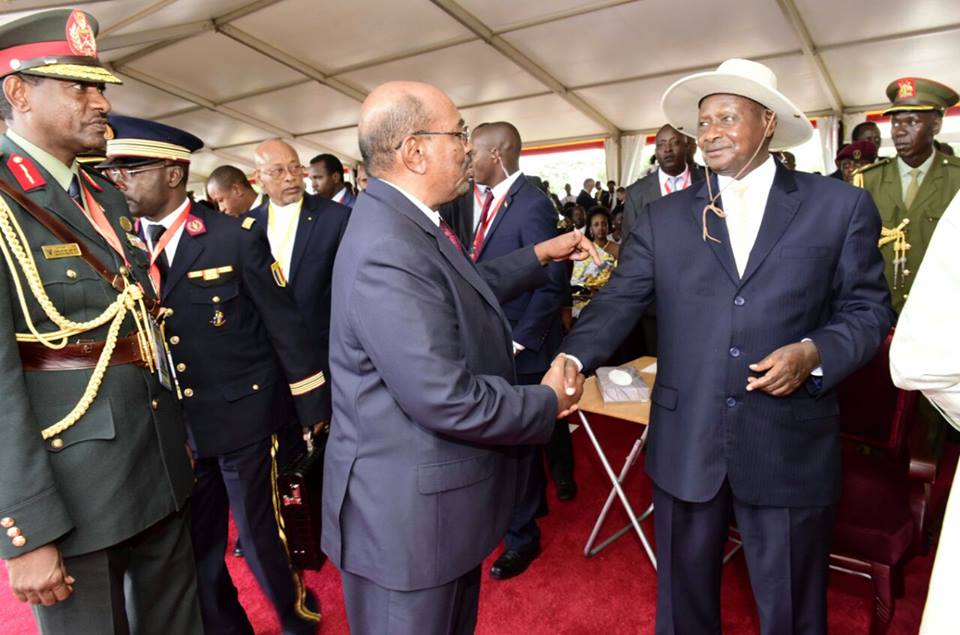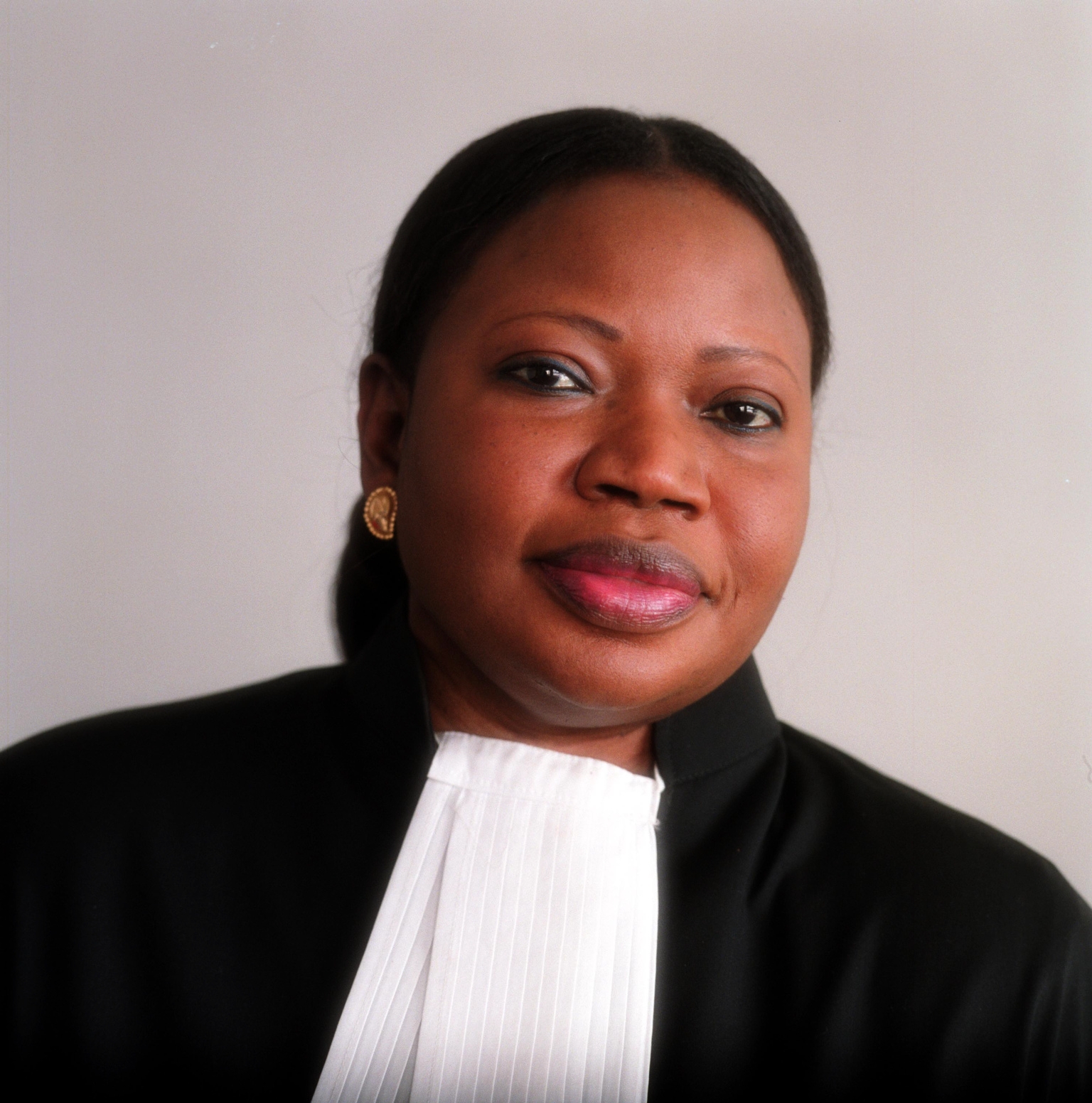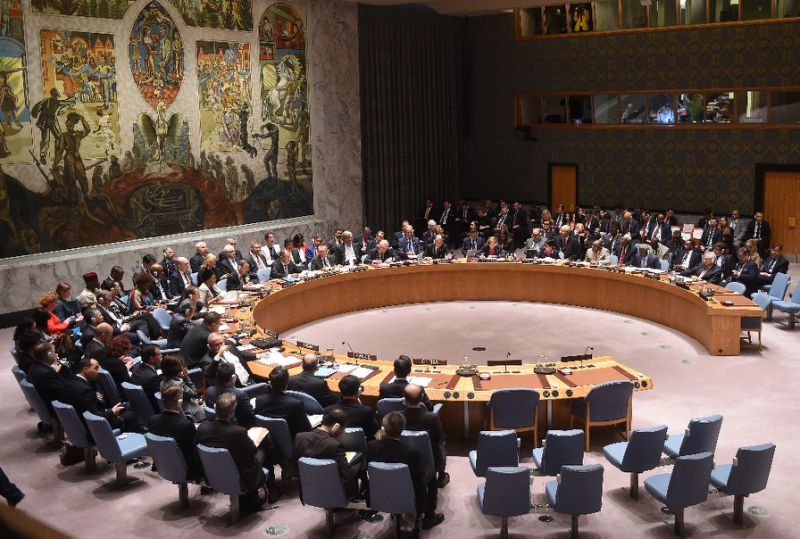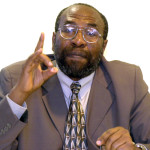Sudan President Omar El Bashir’s increased travels around the world including a recent one to Uganda have emboldened him to defy international justice, the International Criminal Court (ICC) Prosecutor Fatou Bensouda, has said.
President al-Bashir, who was in Uganda on May 12 and later in Djibouti to attend the inaugurations of Presidents Yoweri Museveni and Ismail Omar Guelleh, respectively, is the first sitting head of state to be indicted by the ICC for war crimes, crimes against humanity and genocide reportedly committed during a counterinsurgency campaign carried out by the army and government militias in Darfur region after the outbreak of rebellion in 2003.

Both Uganda and Djibouti are parties to the Rome Statute, but addressing supporters who turned up at the Kololo Ceremonial grounds for his swearing in ceremony President Museveni described the ICC as ‘a bunch of useless people’, kicking off a storm that even saw American and European diplomats walk out on him.
But presenting her twenty-third report to the United Nations Security Council (UNSC) on the situation in Darfur, Bensouda said the inaction to rein in Bashir by the Security Council “has emboldened (Mr Al Bashir) to continue travelling across international borders despite the fact that two arrest warrants have been issued against him by the Court”.

She further said that Council’s failure to act has “equally emboldened states, both parties as well as certain non-parties to the Rome Statute, not only to facilitate Mr Al Bashir’s travels to their territories but to invite and host him”.
She emphasized that such an evolving trend risked setting an ‘ominous precedent’, which, unless redirected, will not bode well for similar genuine efforts aimed at bringing those responsible for mass atrocities to justice.
“Above all, such nonfeasance has emboldened some States to publicly express pride in disregarding the Council’s authority,” she said, which should be a matter of great concern to all.
Bensouda further said that her work on Darfur was complicated by the lack of access to Sudanese territory, resource constraints and non-execution of the long-outstanding arrest warrants against Sudanese officials, which have all contributed to the slow progress in investigations.
The ICC issued arrest warrants for the Sudanese President Omer al-Bashir, his former Interior Minister Abdel Rahim Hussein, the former deputy Interior Minister Ahmed Haroun, and a former militia leader Ali Kushayb.
African countries members of the UN Security Council including Angola, Egypt and Senegal showed their commitment to the African Union’s position on the ICC and called to suspend criminal proceedings against President Bashir.
Chinese and Russian envoys also expressed their support to the AU’s position. The Japanese representative expressed his support to the ICC and called to bringing those responsible for Darfur crimes to justice.
The Sudanese Ambassador Omer Dahab Fadl Mohamed said his country had no connection whatsoever with the ICC pointing that article 13 (b) of the Rome Statute did not indicate its applicability to non-signatory States.
He added that the decision to refer the Darfur situation had been unfounded, and it was unfortunate that countries of the Northern hemisphere had exempted themselves, while African countries suffered discriminatory treatment.







